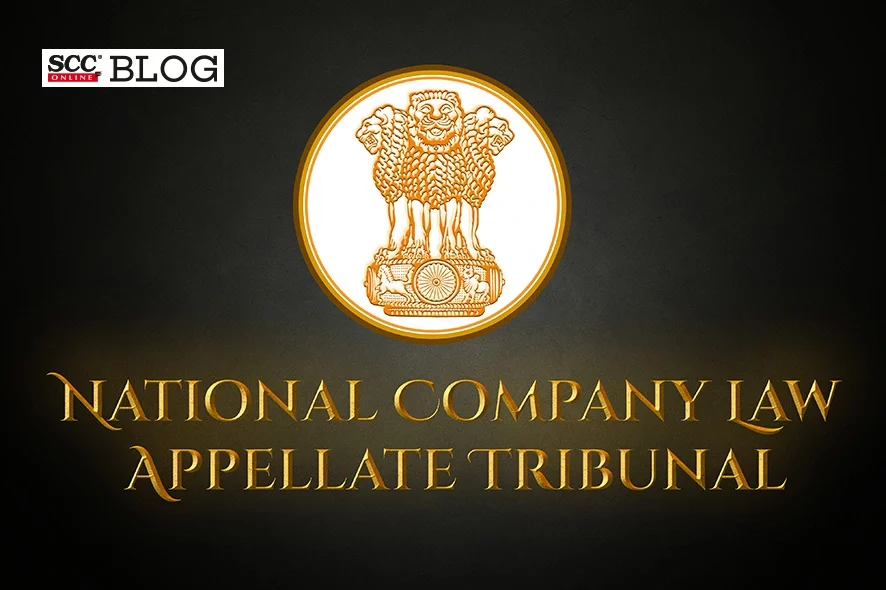National Company Law Appellate Tribunal, Chennai: In a matter related to ₹360 crore loan advanced by Hewlett Packard Enterprise India, an Indian subsidiary of American IT giant to a fellow subsidiary, a division bench comprising of M. Venugopal,* J., and Mr. Shreesha Merla (Technical Member), has upheld the ₹10 Lakh compounding fees imposed on the appellant by NCLT for non-compliance with Section 185 of the Companies Act, 2013.
Factual Matrix
In the instant matter, the appellant, Hewlett Packard Enterprise India (HPE India), advanced a ₹360 crore loan advanced in 2017 to a fellow subsidiary, Hewlett Packard Enterprise GlobalSoft Private Limited (HPEG). Both the HPE India and HPEG had a common non-executive, professional director at the time of advancement of loan, however, he later resigned from HPEG.
The appellant its MD filed compounding applications to address any potential non-compliance with Section 185 of the Companies Act and contended that the loan was advanced without ill intent in the ordinary course of business and that it was promptly repaid.
The Adjudicating Authority vide order dated 20-12-2018, imposed ₹10 Lakh compounding fees for non-compliance with Section 185 of the Companies Act, 2013. The Adjudicating Authority also imposed an additional ₹5 lakh compounding fee on appellant's Managing Director (MD), Som Prakash Satsangi.
The Adjudicating Authority directed the Registrar of Companies, Karnataka, to ensure compliance with its directives and dispose of the company petition. Aggrieved by the impugned order passed by the Adjudicating Authority, the appellant preferred an appeal before the NCLAT challenging the same.
Appellant's Contentions
The appellant contended that they had inadvertently violated Section 185 of the Companies Act, 2013, and had applied for voluntary compounding of this potential non-compliance, which occurred on 04-01-2017 and was rectified on 09-01-2018. It was claimed that they had stayed the operation of the impugned order by paying a sum of ₹5,00,000, as directed by the Tribunal.
The appellant contended that the loan in question was disbursed at an arm’s length basis, in the ordinary course of business, at an interest rate not less than that declared by the Reserve Bank of India. It was contended that the two directors who were not part of the compounding application, should be prosecuted by the Registrar of Companies as per the provisions of the Companies Act, 2013. It was further contended that if the impugned order is not set aside, the appellant will face monetary loss and potential prosecution.
Respondent's Contentions
The respondent contended that the appellant company was in non-compliance regarding the loan, and the common director during the period of default had committed a violation of Section 185 of the Companies Act, 2013. It was contended that the appellant company is liable for a fine of up to ₹25,00,000 as per Section 185(2) of the Companies Act, 2013, for the default committed during the relevant period. It was further contended that the appellant had admitted the breach and filed an application for compounding the offenses and therefore, had the opportunity to present their case before the tribunal.
Moot Point
The central issues revolve around the imposition of compounding fees, the retrospective application of legal amendments, and the fairness of the NCLT’s order.
NCLAT's Assessment
The NCLAT observed that as per Section 185 of the Companies Act, 2013, a loan can be granted to the interested concerns, only for the repayment of the loan, and not for any other reason.
The NCLAT observed that there was a violation of Section 185 of the Companies Act, 2013, in relation to an inter-corporate loan and the appellant company, as well as its directors, are considered officers in default, and the law imposes penalties for such violations. The NCLAT observed that the appellant company had itself admitted the violation and filed an application for compounding the offense and this admission further strengthens the case against the appellant.
The NCLAT rejected the appellant's contention that that the directors who were not part of the compounding application, should be prosecuted and the appellant company's MD ought not to be fined as he was not an “officer in default”.
The NCLAT held that fine imposed by the Adjudicating Authority cannot be said to be excessive or exorbitant one. The NCLAT refused to interfere with the impugned order after taking into account the fact that the impugned order was passed while taking a lenient view despite the apparent default continuing for about 160 days.
NCLAT's Verdict
The NCLAT dismissed the present appeal and upheld the Adjudicating Authority's order which imposed ₹10 Lakh compounding fees for non-compliance with Section 185 of the Companies Act, 2013 on the appellant.
[Hewlett Packard Enterprise India (P) Ltd. v. Registrar of Companies, Bangalore, 2023 SCC OnLine NCLAT 594, order dated 29-08-2023]
*Judgment by M. Venugopal
Advocates who appeared in this case :
Ms. Varuna Bhanrale, Counsel for the Appellants
Mr. Avinash Krishnan Ravi, Counsel for the Respondent







